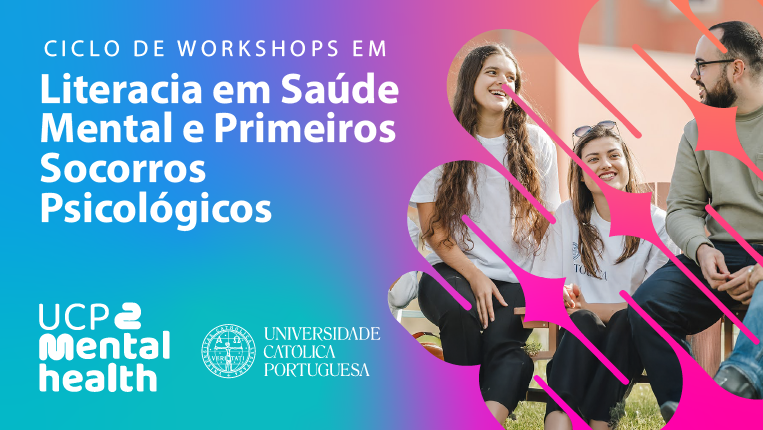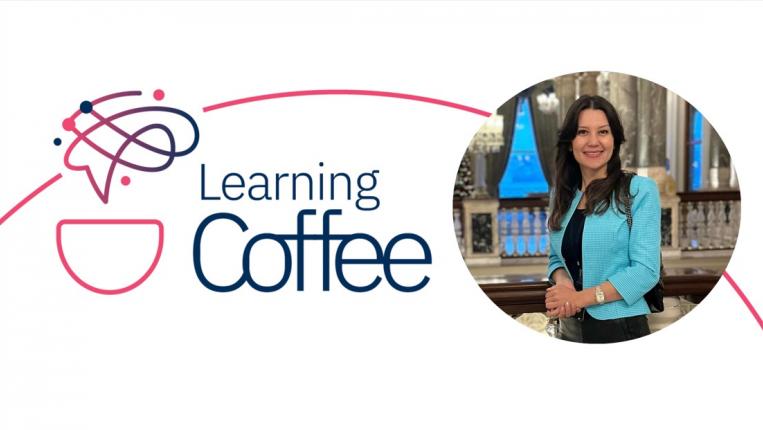Alexandra Fretian, from the Technical University of Munich at the TUM School of Medicine and Health and WHO Collaborating Centre for Health Literacy, recently visited the Faculty of Education and Psychology at the Universidade Católica Portuguesa (FEP-UCP) and its Research Centre for Human Development (CEDH). Her visit aimed to deepen her understanding of the Expanding Mental Health Literacy project, coordinated by Luísa Campos and Pedro Dias, with recent collaboration from Diogo Costa. We had the opportunity to speak with Alexandra about her background, her research interests on mental health literacy, and her experience at FEP-UCP/CEDH.
Could you tell us about your background and your research interests?
My academic journey has been multidisciplinary. I started with an undergraduate degree in psychology in Romania, then moved to Germany to complete a master’s in public health, followed by a PhD in educational sciences. My research interests focus on health literacy, with a particular emphasis on mental health literacy, especially among adolescents.
Why do you believe mental health literacy is so important?
Mental health literacy is crucial because mental health is still an underrepresented area within health promotion and remains stigmatized in public perception. In many countries mental health care is largely underfunded and separated form general health care showing that mental health is not viewed as an integral part of general health. Given the prevalence of mental health issues, nearly everyone will encounter this topic in their lives, whether through personal experience or by supporting friends, family, or coworkers. It’s essential for people to recognize the signs of mental illness, know how to seek support, and advocate against negative stereotypes. Adolescence is an ideal period to start cultivating mental health literacy since many mental health conditions begin to develop during this stage of life.
“Mental health literacy interventions for youth are effective in increasing knowledge about mental health and destigmatizing mental illness”
Recently, you have completed your PhD with a dissertation on Mental Health Literacy in Adolescence. What were some of the key findings?
One significant finding was that mental health literacy interventions for youth are effective in increasing knowledge about mental health, reducing stigma, and, to some extent, building confidence in seeking professional help. However, there is limited data on other outcomes. For instance, we don’t yet know if young people who participate in these interventions are more likely to seek professional help or handle stress better as a result. Future research should shift the focus from merely improving mental health literacy to looking at ways we can enhance overall well-being in ways that benefit mental health. This broader perspective can yield meaningful insights for improving mental health outcomes.
How did you become familiar with the Expanding Mental Health Literacy project?
During my dissertation, I engaged deeply with the field of mental health literacy, and one challenge I noticed was the need for consistent measurement tools. Luísa Campos, Pedro Dias, and their team addressed this by developing a new mental health literacy questionnaire, which is being used in the Expanding Mental Health Literacy project. This tool enables reliable cross-cultural comparisons, which are invaluable for understanding mental health literacy across different contexts. At the Technical University of Munich, we are conducting a national survey in Germany, so incorporating this tool offers a great opportunity to contribute to a more comprehensive understanding of mental health literacy globally.
“Our primary aim is to compare mental health literacy levels between Portugal and Germany”
What insights or experiences have you gained so far from working with the FEP-UCP team?
Our primary aim is to compare mental health literacy levels between Portugal and Germany and examine the impact of socioeconomic factors. This is an under-researched area, and we hope to close this gap through a joint publication on the topic. I’ve enjoyed collaborating closely with the FEP-UCP team, which has been very insightful.
What have you enjoyed most about your time here in Porto and at the Universidade Católica Portuguesa?
I’ve been particularly impressed by the welcoming culture at CEDH and the openness of the team to share their research and even their local insights to help me enjoy my stay. The experience has been enriching on both professional and personal levels, and I highly recommend academic exchanges like this one—they’re excellent for fostering new ideas and collaborative spirit.
Alexandra’s visit to FEP-UCP/ CEDH and her involvement in the Expanding Mental Health Literacy project highlight the importance of cross-cultural collaboration in advancing mental health literacy research and interventions. We look forward to seeing the continued contributions of her research.





